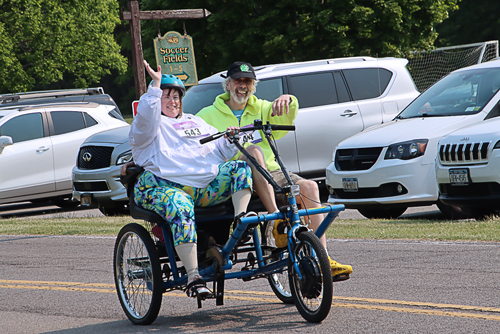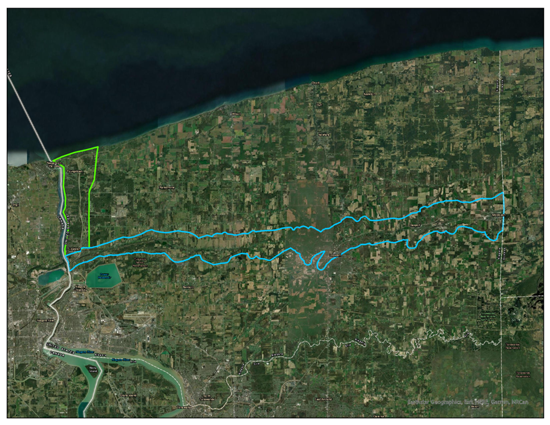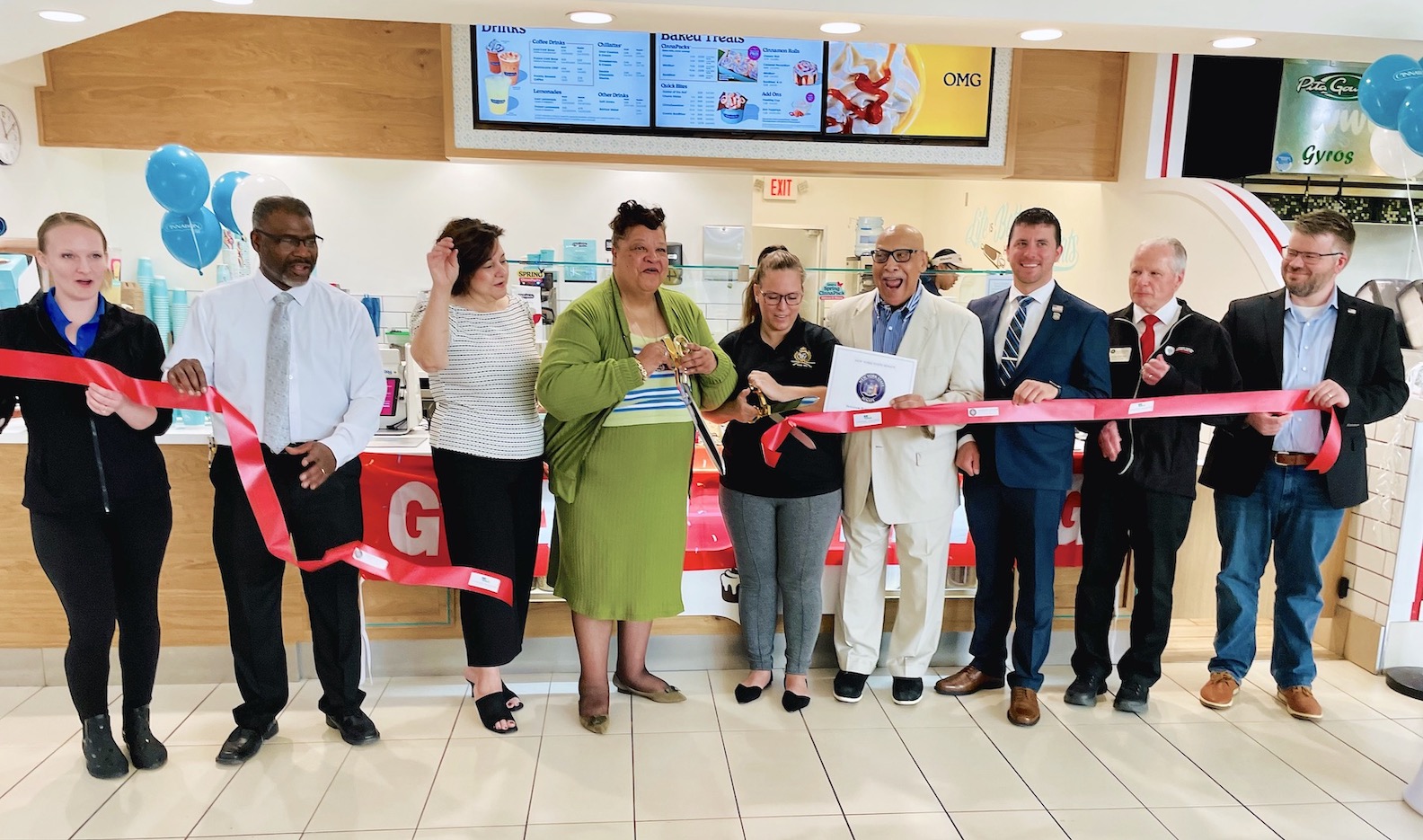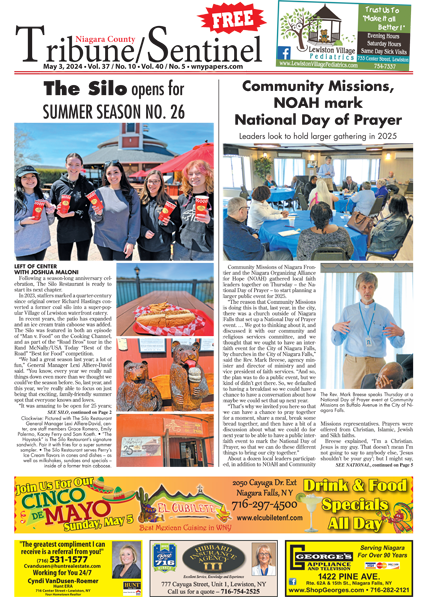Featured News - Current News - Archived News - News Categories
Arrive early, stay put, and leave late to avoid traffic congestion
Submitted by the Erie County Department of Health
On April 8, residents of Erie County will experience a total solar eclipse. The last total solar eclipse in New York state was nearly 100 years ago. With such an exciting and rare event, Erie County wants to ensure community members are safe and prepared for the eclipse.
A total solar eclipse occurs when the moon passes between the sun and the Earth, completely blocking the face of the sun. Since eclipses are rare phenomena, Erie County expects a large influx of tourists and visitors, with the projected number of visitors nearing 1 million people.
Eclipse tourism will increase the chance of congestion and traffic, and heavy traffic may cause travel delays and detours. For the safety of everyone in Erie County, residents need to plan ahead. Residents should celebrate the eclipse from their own homes. As long as the skies are clear, visibility should be good from most locations. If residents choose to travel, it is crucial to arrive early to events, stay put for the eclipse, and leave late to avoid causing significant congestion.
Erie County encourages residents to prepare in advance for the eclipse through the following considerations:
√ Plan travel ahead of time. Try to arrive early to viewing locations, utilizing public transit or carpooling if possible. Stay put for the duration of the eclipse, and plan on leaving late from viewing events.
√ Stay informed on traffic patterns. Increased congestion and potential accidents mean traffic may change frequently. Visit 511wny.org to stay updated.
√ Create a communication plan. Increased cell phone usage in the area can burden cell networks. Text when possible, and create backup plans for communicating with family members.
√ Pack accordingly. Erie County's weather can be unpredictable in early April, so residents should consider preparing for wet, cold, or hot conditions. To make an eclipse experience more enjoyable, consider bringing camping chairs, jackets, water, snacks, and first aid supplies.
√ Prevent medication emergencies. Check your medication stock regularly and call your pharmacy if running low. Keep your medication with you if traffic delays get you stuck somewhere longer than anticipated.
Eye safety
“We want to make sure that everyone enjoys the eclipse, and eye safety is essential for making that happen,” Commissioner of Health Dr. Gale Burstein said. “Eclipse safety glasses are necessary during the partial phases of the eclipse. Looking directly at the sun without these glasses can damage your eyes and cause permanent retinal burns. Symptoms of retinal burns include a loss of central vision or distorted vision, and anyone experiencing symptoms should seek professional treatment.”
Erie County urges residents to get eclipse glasses in advance of April 8. Solar eclipse glasses must have an ISO 12312-2 safety standard. It is essential to ensure that eclipse glasses are not scratched or damaged. Sunglasses are not an acceptable substitute for solar eclipse glasses. Camera lenses, binoculars and telescopes are only safe for looking at the sun if equipped with special-purpose solar filters, even if wearing eclipse glasses.
Eclipse viewers must wear solar eclipse glasses during the eclipse's partial phases. For Erie County, the partial eclipse begins at 2:04 p.m. Totality, from 3:18 to 3:22 p.m., is the only time eclipse glasses do not need to be worn. From 3:22 p.m. onward, eclipse viewers must wear eclipse glasses again. Parents must supervise children to ensure that eclipse glasses are correctly worn.
Impaired and distracted driving
Make sure everyone gets home safely from eclipse activities. Drivers who are impaired by alcohol, cannabis, illicit drugs or some prescription or over-the-counter medicines can cause vehicle accidents that lead to traumatic injury, property damage and death. Distracted drivers who are texting, checking map directions or making phone calls while driving can also cause devastating accidents.
If you are planning to drive on April 8, drive cautiously and courteously; know your route to and from your destination; plan for delays and potential detours. If are planning to use an impairing drug or substance, plan ahead for a responsible driver. Do not let friends drive if they are under the influence of an impairing drug. Don’t make or answer calls or texts while driving; if you need to talk or text, pull over to a parking lot or other safe space off the roadway. And, always wear your seatbelt.
2-1-1, 3-1-1, 5-1-1 and 9-1-1
2-1-1 WNY is available 24/7 for free referrals to health and human services and other basic needs. 3-1-1 is a service for City of Buffalo residents to get information about city services and share complaints. 3-1-1 will be open on April 8. 5-1-1 NY (phone) and 511ny.org have current traffic conditions and delays statewide.
ECDOH has compiled a list to remind people when to call 9-1-1, and when not to call 9-1-1 (https://www3.erie.gov/health/sites/www3.erie.gov.health/files/2024-03/urgentcare911.pdf).
•When to call 9-1-1:
√ Breathing difficulty/shortness of breath/breathing has stopped
√ Choking (cannot talk or breathe)
√ Constant chest pain – in adults (lasting longer than two minutes)
√ Uncontrolled bleeding or large blood loss
√ Gunshot wounds, stabbings
√ Vomiting blood
√ Sudden fainting/loss of consciousness
√ Severe allergic reaction (difficulty breathing or unresponsive)
√ Broken bones
√ Severe injuries from: traffic accidents, head injury, significant falls, physical entrapment
Additional resource





























